Filter by
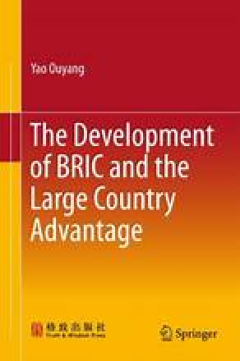
The Development of BRIC and the Large Country Advantage
https://link.springer.com/book/10.1007/978-981-10-0633-3
- Edition
- 1
- ISBN/ISSN
- 978-981-10-0633-3
- Collation
- XV, 196, 13 b/w illustrations, 1 illustrations in colour
- Series Title
- -
- Call Number
- -
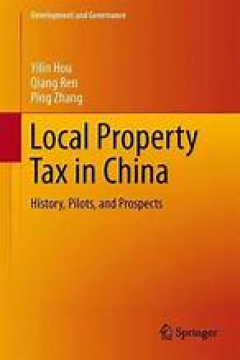
The Property Tax in China
This monograph offers a detailed analysis of the creation, pilot implementation, and possible wide adoption of the real property tax at the local level in China. Starting in 2003, as China’s economy gradually recovered from the Asian financial crisis that started in 1998, the real property market entered a period of rapid expansion, followed immediately by rampant speculation, rising housing …
- Edition
- 1
- ISBN/ISSN
- 978-3-319-10049-4
- Collation
- XVII, 186, 39 illustrations in colour
- Series Title
- Development and Governance
- Call Number
- -
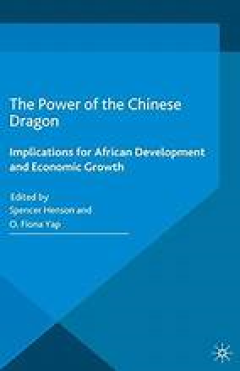
The Power of the Chinese Dragon
This important reader brings together published articles from Palgrave's journal The European Journal of Development Research on the development between China and Africa as well as emerging national economies in the BRICs group. Topics include trade relations, investment in sub-Saharan Africa, global politics of development and more.
- Edition
- 1
- ISBN/ISSN
- 978-1-137-57449-7
- Collation
- XII, 275
- Series Title
- Palgrave Readers in Economics
- Call Number
- -

The Politics of Pharmaceutical Policy Reform
Brazil is renowned worldwide for its remarkable reforms in pharmaceutical regulation, which have enhanced access to essential medicines while lowering drug costs. This book innovates by analysing the generic drug reform in Brazil, demonstrating that pharmaceutical regulation is only partially influenced by non-state actors. Little is known about the institutional antecedents and policy process…
- Edition
- 1
- ISBN/ISSN
- 978-3-319-12565-7
- Collation
- XII, 117, 1 illustrations in colour
- Series Title
- SpringerBriefs in Political Science
- Call Number
- -
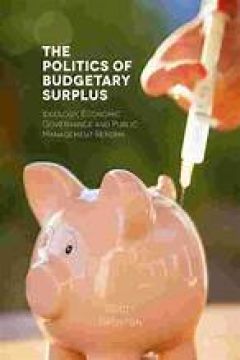
The Politics of Budgetary Surplus
This book probes the hollow rhetoric of debt, deficits and austerity. It explores the decisions of parties of the left which have attempted to deflect criticisms of economic mismanagement and gain trust by depoliticising the budget process and financial management with various rules, albeit with elements of discretion. The book argues that this is a perverse form of trust as it is premised on t…
- Edition
- 1
- ISBN/ISSN
- 978-1-137-58597-4
- Collation
- XV, 187
- Series Title
- -
- Call Number
- -
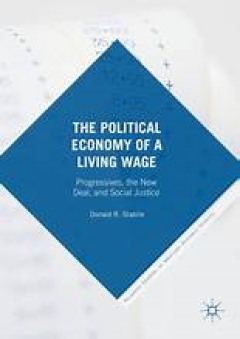
The Political Economy of a Living Wage
This book tells the story behind President Franklin D. Roosevelt’s use of the phrase "living wage" in a variety of speeches, letters, and statements, and examines the degree to which programs of the New Deal reflected the ideas of a living wage movement that existed in the US for almost three decades before Roosevelt was elected president. Far from being a side issue, the previously unexplore…
- Edition
- 1
- ISBN/ISSN
- 978-3-319-32473-9
- Collation
- X, 292
- Series Title
- Palgrave Studies in American Economic History
- Call Number
- -

Free Money for All: A Basic Income Guarantee Solution for the Twenty-First Ce…
Free Money for All makes the case for a basic income guarantee of $10,000 per adult US citizen. The book shows that a basic income guarantee will increase gross national happiness and gross national freedom, while helping to mitigate some of the worst consequences of rising technological unemployment.
- Edition
- -
- ISBN/ISSN
- 978-1-137-47133-8
- Collation
- XI, 249 pages
- Series Title
- Exploring the Basic Income Guarantee
- Call Number
- -

Fish, Fishing and Community in North Korea and Neighbours Vibrant Matter(s)
This open access book explores the histories and geographies of fishing in North Korea and the surrounding nations. With the ideological and environmental history of North Korea in mind, the book examines the complex interactions between local communities, fish themselves, wider ecosystems and the politics of Pyongyang through the lens of critical geography, fisheries statistics and management …
- Edition
- -
- ISBN/ISSN
- -
- Collation
- -
- Series Title
- -
- Call Number
- -
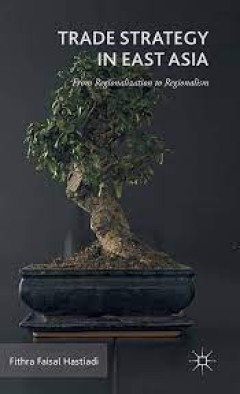
Trade Strategy in East Asia From Regionalization to Regionalism
The study of regionalism is essential as it has become a vital trend with profound regional and global impacts. Japan, Korea and China are regarded as the key actors for such action in East Asia. While regionalization has created building blocks for economic integration, the act of exclusion from regionalism will only lead to marginalization. Therefore, it is important to learn how to make it w…
- Edition
- -
- ISBN/ISSN
- 978-1-137-56967-7
- Collation
- -
- Series Title
- -
- Call Number
- -

Towards a Dynamic Regional Innovation System Investigation into the Electron…
Embedding the theoretical discussion on the framework of evolutionary regional innovation systems (RIS), this book reveals the informal nature of the emerging RIS in China, within which interactive learning is organized on the basis of social networks. Furthermore, in a comparative study in the Pearl River Delta, China demonstrates that dirigiste governance in the initial industrialization phas…
- Edition
- -
- ISBN/ISSN
- 978-3-662-45416-9
- Collation
- -
- Series Title
- -
- Call Number
- -
 Computer Science, Information & General Works
Computer Science, Information & General Works  Philosophy & Psychology
Philosophy & Psychology  Religion
Religion  Social Sciences
Social Sciences  Language
Language  Pure Science
Pure Science  Applied Sciences
Applied Sciences  Art & Recreation
Art & Recreation  Literature
Literature  History & Geography
History & Geography